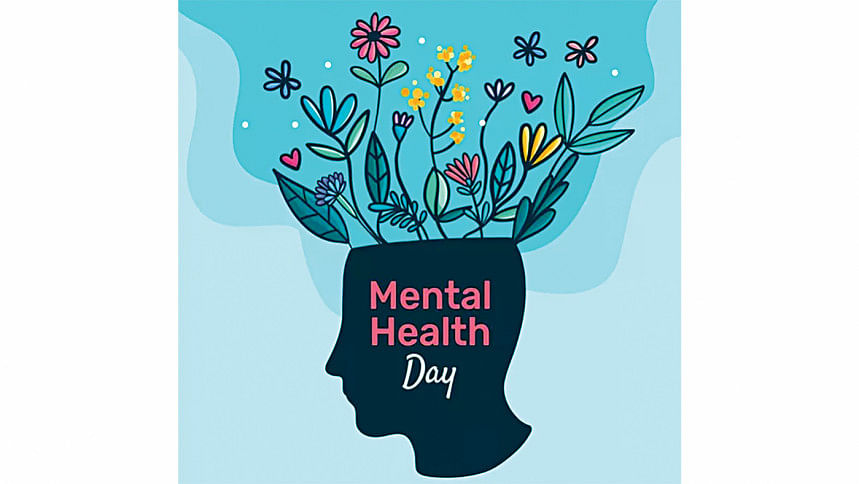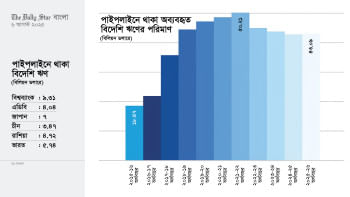Over 30m in need of mental health services: WHO

Marking World Mental Health Day, which took place yesterday, Dhaka University, Bangabandhu Sheikh Mujib Medical University, and the National Institute of Mental Health organised various seminars, meetings, and processions.
The theme of this year was "Now is the Time to Prioritise Mental Health in the Workplace".
Despite growing concerns over mental health in Bangladesh, there have been no surveys, research, or data collected in the last five years on the number of people affected by mental illnesses.
However, the World Health Organization estimates that over 30 million people in the country are in need of mental health services.
Helal Uddin Ahmed, associate professor at the National Institute of Mental Health (NIMH), attributed this alarming situation to workplace stress, low wages, layoffs, job dissatisfaction, and a lack of social support.
Poverty and the fear of losing social status further exacerbates the issue, leading to depression among workers.
He said one in five workers experiences mental health challenges, and 80 percent of those with serious conditions lose their jobs.
A survey by the NIMH in 2018-19 revealed that 17 percent of adults in Bangladesh suffer from mild to severe mental health issues, with 19 percent of women and 15 percent of men affected. Among those under 18, 13.6 percent struggle with mental health, but over 90 percent of them do not receive treatment.
The number of mental health professionals in the country is woefully inadequate, with fewer than 250 psychiatrists and psychologists, and over 100 of them being based in Dhaka.
Doctors at the NIMH say the majority of patients seeking care are working adults.
At the NIMH and Hospital, 79.4 percent of patients are diagnosed with schizophrenia or bipolar disorder, while 20.6 percent suffer from other complications.
Since 2001, the National Institute of Mental Health has provided outpatient services to 13,57,000 people, with 59,829 admitted and 56,541 treated in the emergency department. By October 1 this year, 74,136 patients, including 13,000 children, had received treatment, with 4,333 admitted.
Doctors stress that early intervention could result in recovery for 25 to 30 percent of patients. Helal Uddin said half of all mental health issues manifest by the age of 14, with 93 percent of cases going untreated.
Professor Mohammad Abdullah Al Mamun, director of NIMH, stressed the urgent need to focus on mental health in the workplace. He stressed that a positive work environment is crucial to improving mental well-being.

 For all latest news, follow The Daily Star's Google News channel.
For all latest news, follow The Daily Star's Google News channel. 



Comments